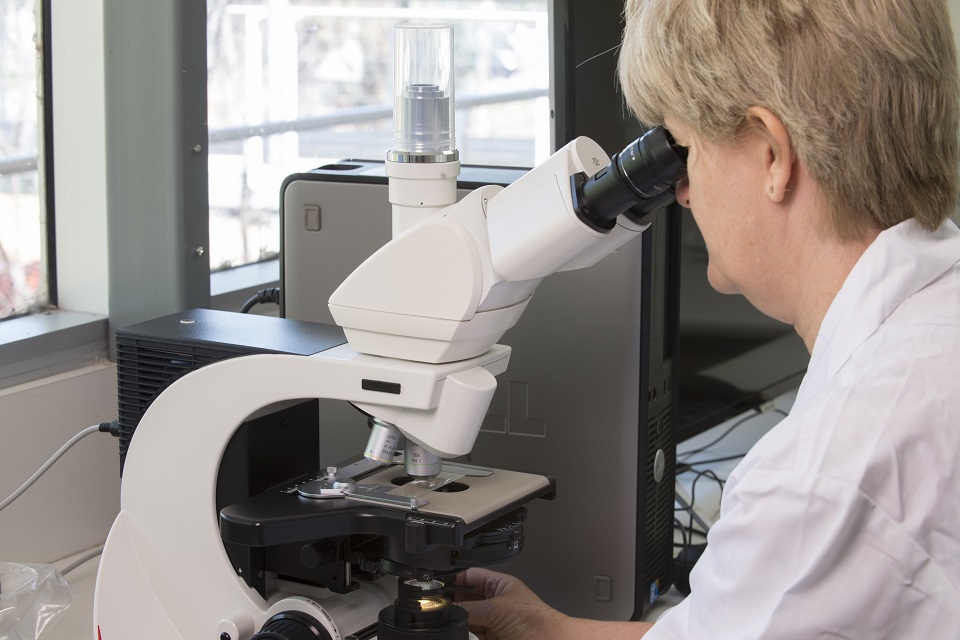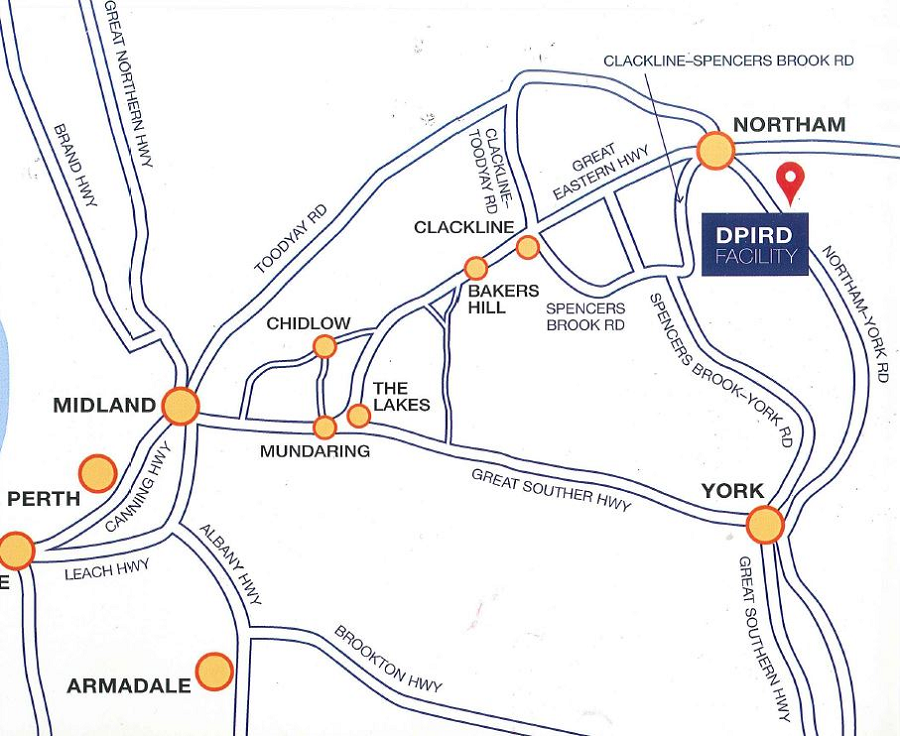We collaborate with industry and grower groups, universities, and other research providers to enhance the impact and delivery of our research and development. The new facilities provide further opportunity to collaborate with innovative researchers, agronomists, and academics to support Western Australia’s agricultural industries.
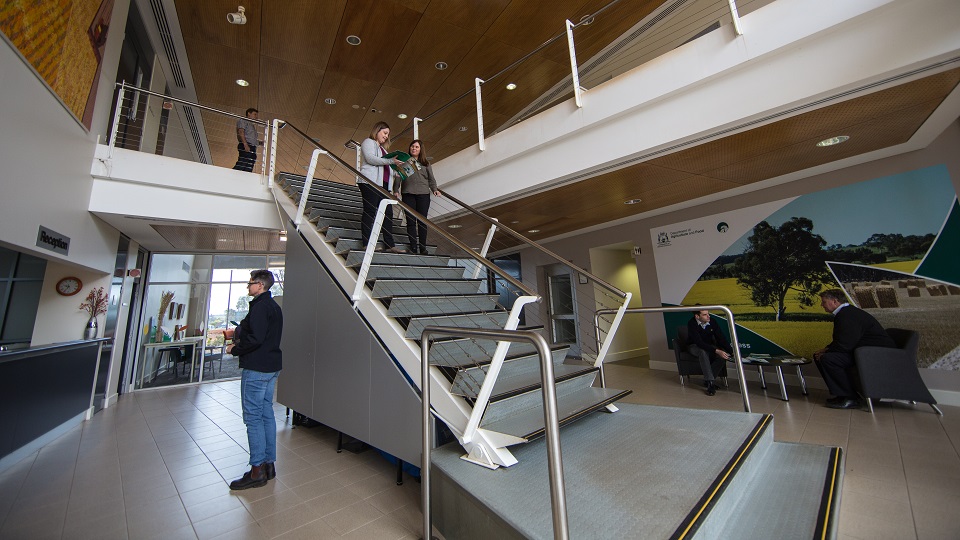
Research
Research and development to develop integrated solutions for Western Australian grain growers is focused on:
- agronomy of new varieties and cropping systems
- techniques to increase soil fertility and crop nutrient availability
- management of pests, weeds, and diseases through chemical, cultural and biological methods
- evaluation of new and improved crop breeding lines and genetic traits.
Research programs led from Northam include:
- barley and oat variety optimisation for wheatbelt environments and end use markets
- soil amelioration techniques and management practices for improved crop production
- re-engineering soils to optimise crop growth and production
- crop and soil nutrition including optimising fertiliser application
- evaluation of crop breeding material and genetic traits
- lentil and chickpea development for wheatbelt environments
- management of crop pests, weeds, and diseases including electric weed control trials, diamond back moth control, crop disease trials and weed growth in non-wetting soils.
Opportunities for collaboration
Contact us for information on how your organisation can collaborate with the department or book a tour of the Northam Grains research facilities and see the agricultural technology and expertise we have for collaborative research and scientific advancement.
Email GrainsThe field research operations building is designed to receive, store, and process plant material and grain samples collected from research trials distributed across all grain growing regions in Western Australia.
Key features
- Delivery bay with forklift access for offloading commercial vehicles and trucks
- Storage areas with space-saving pallet racking and storage system
- Controlled environment storage areas to maintain the quality of plant and grain samples
- Drying ovens within easy access to delivery, storage, and processing areas
- Air-conditioned processing area with mobile work benches
- Air-conditioned threshing room with dust extraction and specialised grain cleaning equipment
- Air-conditioned milling room with dust extraction system for grinding grain and plant material.
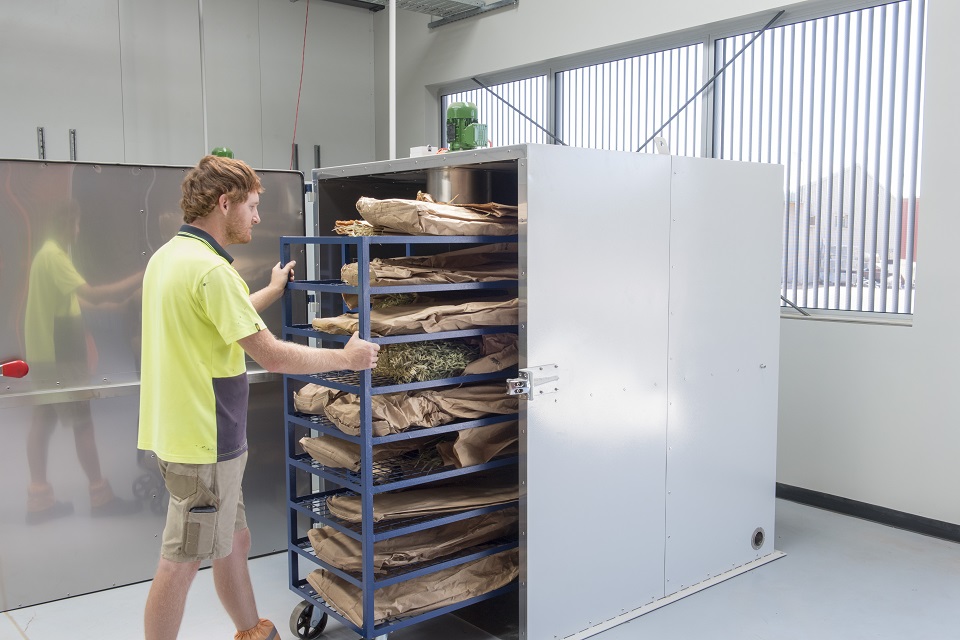
Large insect-proof enclosures support the evaluation of crop growth under insect-free conditions or the impact of specific insect populations (introduced to an enclosure) on crop development.
Key features
- Three 210 m2 steel framed screenhouses with ante-room access, internal partitioning, and Gingin loam seedbed
- Overhead sprinkler irrigation system with programmable stations and access to single phase power.
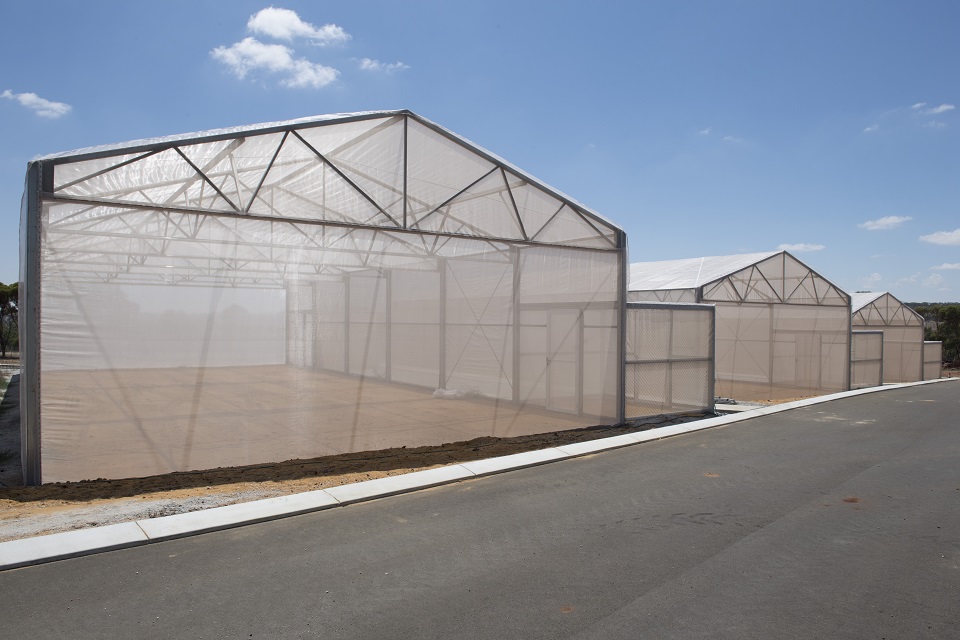
Fully irrigated and vermin proof field sites support detailed studies on crop phenology, agronomy, and protection.
Key features
- 1.3 ha under 3.9 m high bird netting
- 1.2 ha surrounded by rabbit-proof fencing
- Local soil type improved to research requirements
- Irrigation system to individual plots and access to single and 3 phase power
- Permanent access road for vehicles and equipment.
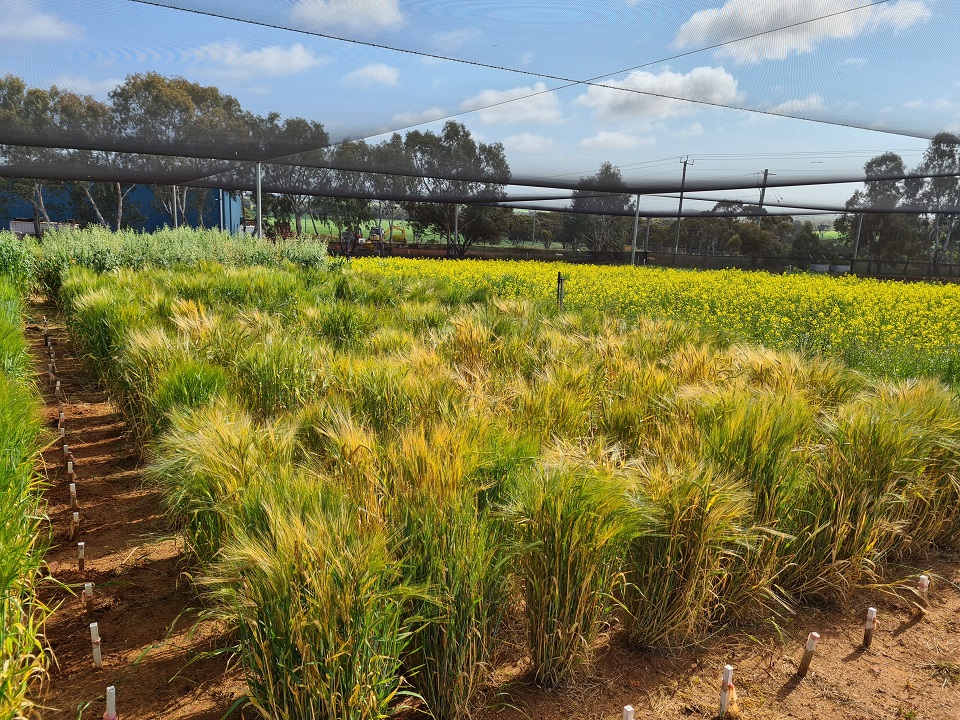
Temperature controlled glasshouses with automatic watering, shade screen and misting systems support crop physiology and nutrition, weeds, and diseases research.
The area includes a purpose built potting-up area with efficient workflow between glasshouses, spray cabinet and growth room facilities.
Key features
- 8 controlled environment glasshouses including 2 built to physical and quarantine containment 2 standards (PC2/QC2)
- 4 controlled environment rooms — temperature, light and humidity
- Plant growth chamber within PC2/QC2-rated room
- 6 m-long spray cabinet, allowing safe and accurate application of chemical treatments
- Chemical preparation area with fume hood
- Bulk soil storage and soil sterilisation facilities
- Root washing sink with sand trap.
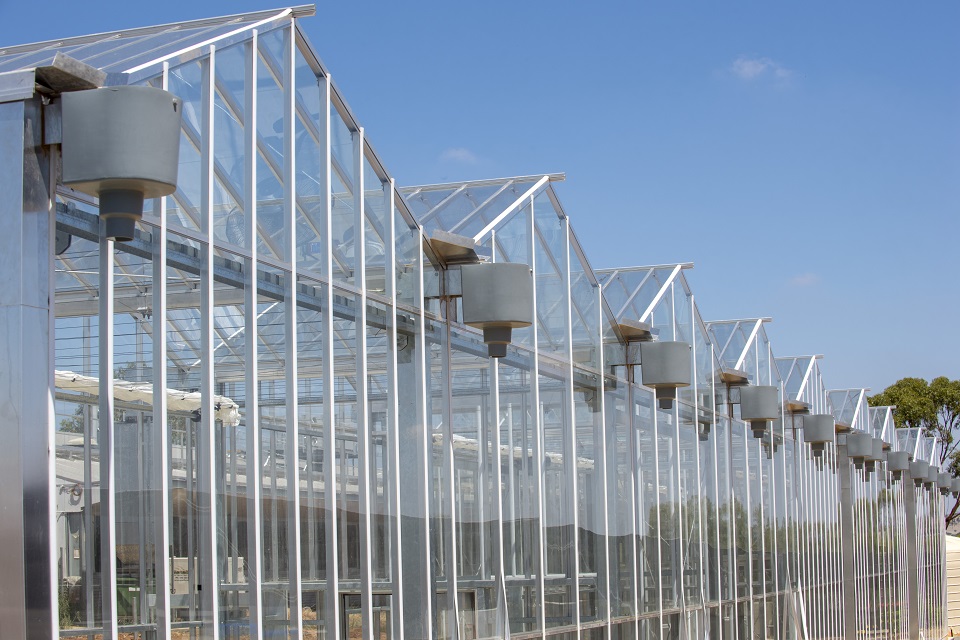
The general and special purpose laboratories are fully equipped to support diverse research requirements, including grain quality and soil chemical analyses, pathology, and molecular procedures with access to physical and quarantine containment (PC2/QC2) if required.
Key features
- 9 spacious laboratories overall, equipped with a wide range of reagents and specialised equipment
- 2 PC2/QC2 standard laboratories with shared preparation area
- 2 dedicated soils laboratories that provide a processing area with dust extraction, and separate laboratory for chemical analyses
- Environmentally controlled laboratory for near infrared (NIR) grain quality analysis.
